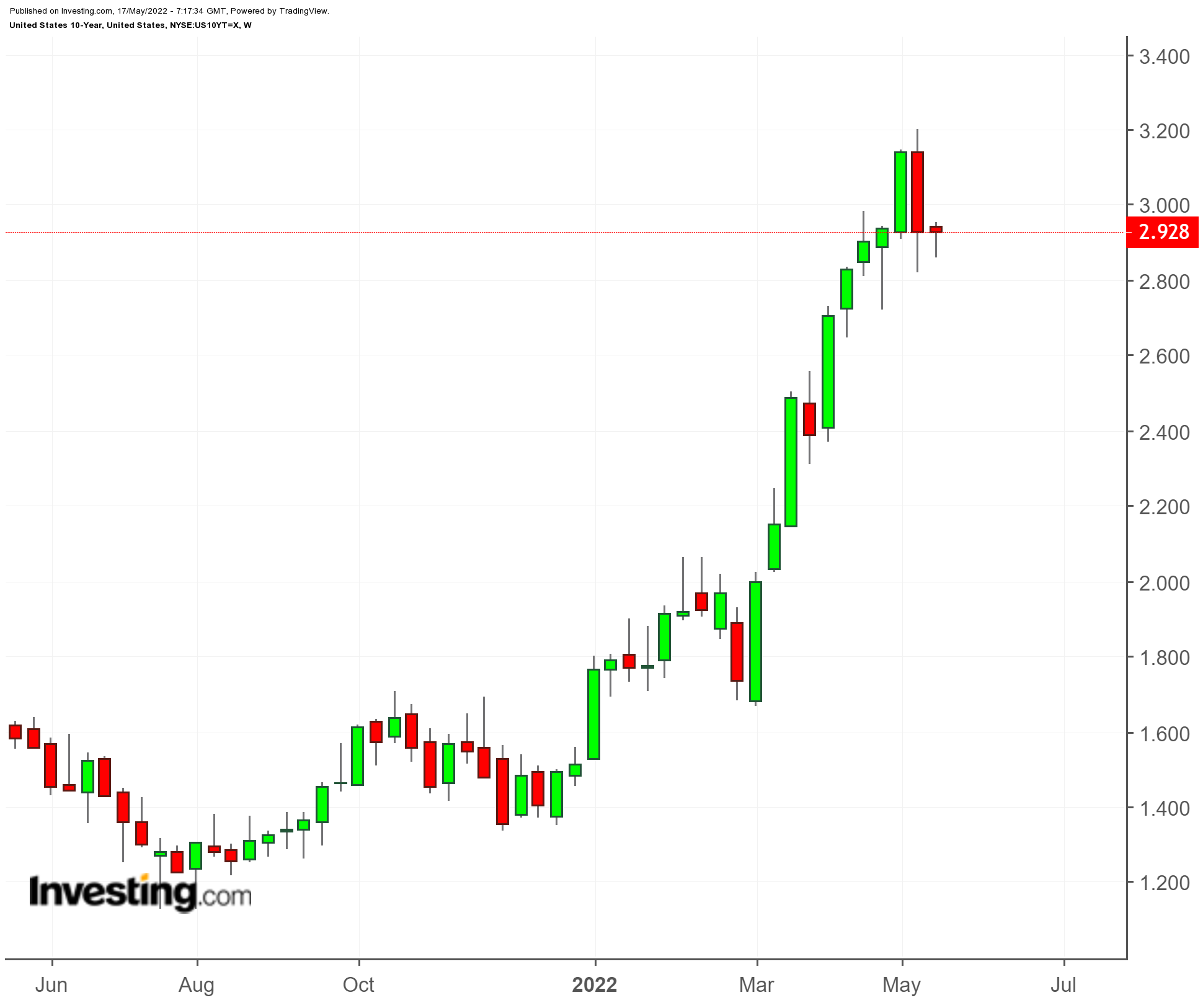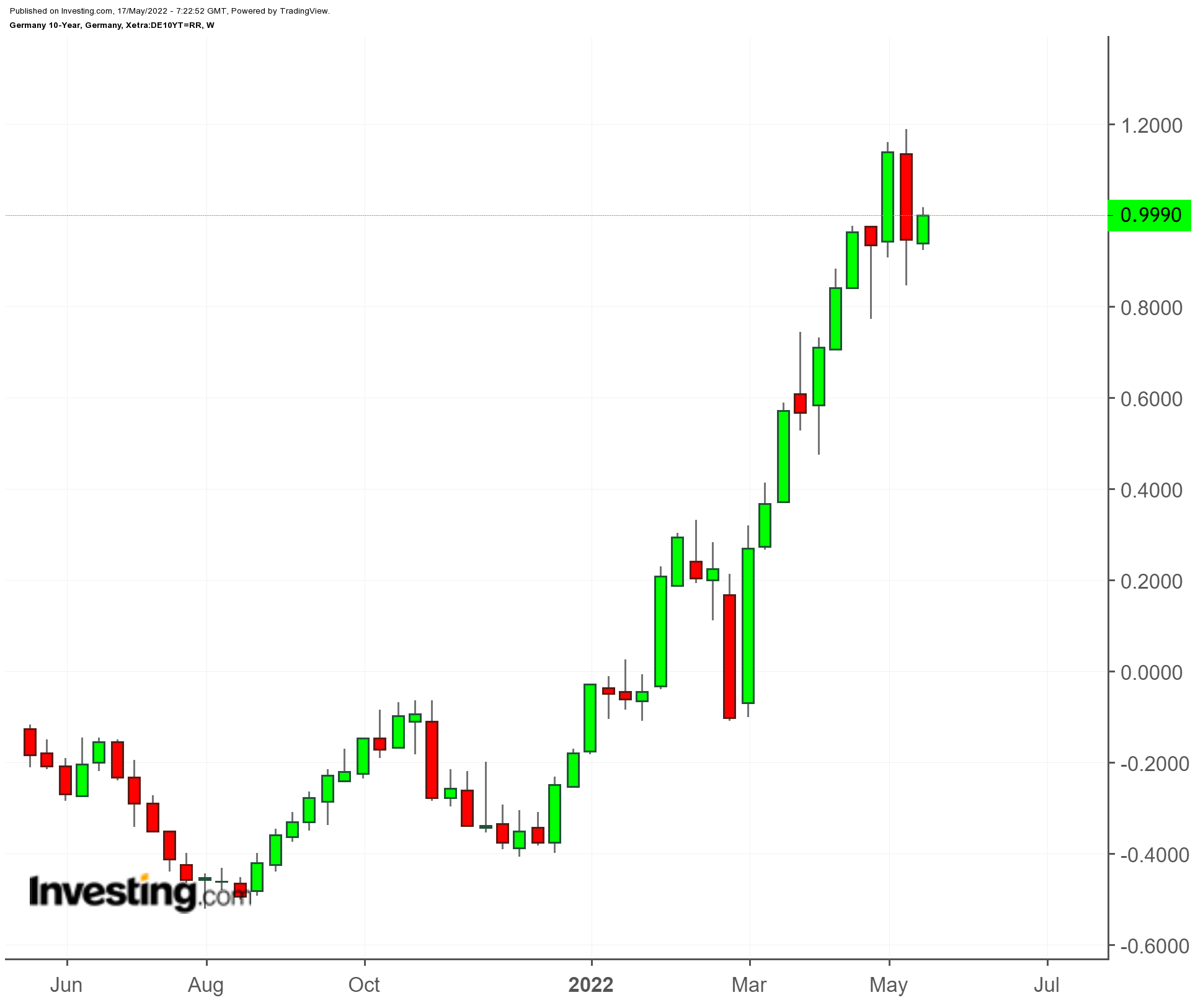Up, down, up, down—US Treasury yields are bouncing around as investors try to balance worries about inflation with concern about a global economic slowdown, or even a recession.
Good news, bad news—data is mixed and the economy has no clear direction. The benchmark 10-year Treasury note yield fell on Monday to just below 2.9% after climbing near 3.2% last week.

Technical analysts put a lot of stock (no pun intended) in the 10-year’s inability to stay above that 3% level, confidently saying if it hasn’t broken through by now, it won’t. We’ll see, but the crystal ball is decidedly murky.
What we have seen in the immediate past is that investors are quick to dump Treasuries if inflation runs hot. Last week’s reading on the April consumer price index came in lower on the year at 8.3% than March’s 8.5%, but that was higher than the 8.1% forecast and hardly evidence that inflation has peaked.
Opinions vary, but there is a growing consensus that inflation will remain quite high.
While Treasury yields go up and down, the dollar goes from strength to strength and is now nearing parity with the euro, which bought $1.20 just weeks ago.
This is partly due to the more aggressive Fed stance on interest rates, which is coming late but is well ahead of any plans at the European Central Bank, where policymakers are still debating whether to get out of negative territory.
The twist is that a stronger currency reduces inflation because it makes imports cheaper, while a weaker currency exacerbates inflation by making them more expensive.
In this case, higher interest rates are making the dollar attractive and drawing inflows, while lower rates make the euro less desirable, encouraging hot money to flow to the US.
European Central Bankers' Dilemma
The head of the French central bank, François Villeroy de Galhau, on Monday said he is worried about the weakness of the euro driving higher inflation.

Villeroy de Galhau has been middle of the road on interest rates, but his remarks drove the yield on Germany’s 10-year bond briefly back above 1% before it fell back in line with Treasury yields. The German bond yield peaked at just over 1.17% last week, but retreated to 0.94% in late Monday trading.
The dilemma for European central bankers is how vulnerable the economy is because of its dependence on Russian oil and gas.
Washington officials warned their EU counterparts for years about the risk of this dependence, but Germany, in particular, pooh-poohed their concerns and pushed ahead with a new pipeline to deliver Russian gas directly to Germany under the Baltic Sea. (The Nord Stream 2 pipeline has now been mothballed.)
There is very little schadenfreude in Washington that those warnings were spot on, because skyrocketing energy prices in Europe not only pull US prices up with them, they jeopardize the continent’s economy.
Russian President Vladimir Putin still allows gas to flow, but he is trying to force the West to pay for it in rubles in retaliation for sanctions against Russia for invading Ukraine, including a freeze on Moscow’s foreign reserves.
It is becoming clear that a global economy is a great thing when everybody plays by the rules, but it can lead to huge disruptions when a bad actor acts badly.
On top of everything else, China, the world’s second largest economy, is pursuing a zero-COVID policy with draconian lockdowns and quarantines that have led to a huge drop in economic activity.
Little wonder that cautious investors prefer the safety of the dollar and a Treasury bond in such an unsettled environment.
